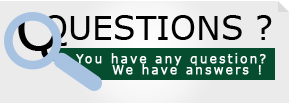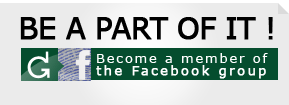Hidradenitis Suppurativa (Acne Inversa): More evidence on how to treat it
Epidemiology of Hidradenitis suppurativa (HS) also called Acne Inversa (Jemec)
-Prevalence is anywhere between 0.0033% (genetic hypothesis) to 4% (self reporting in nurses)
-In a big study in immigrants comparing with Spanish citizens, prevalence of HS was found to reach 0.2% up to 0.9% in Spanish citizens.
prevalence is anywhere between 0.0033% (genetic hypothesis) to 4% (self reporting in nurses)
risk factors:
-obesity
-female sex
-smoking
-tight clothing
-immunological factors
-genetic factors
Genetics (Prens E.)
-gamma secretase mutations are sometimes found
-no HLA mutations have been found
Medical Treatment of HS (Zouboulis C.)
-lack of guidelines (BUT recommendations issued during the EADV meeting in Amsterdam (2014))
Why should HS be treated medically if surgery is the gold standard ?
- HS is an inflammatory disease
- inflammation always precedes scarring
- subclinical lesions (inflammatory nodules…) appear first
What to evaluate before treating ?
- subjective feelings of the patient and objective evaluation by the physician
- local lesions which are treatable
- medical treatment before surgery which consists of monotherapy then antibiotics or immunosuppressantas
Treatments
- Early stages (locally)
- local surgery
- topical clindamycin
- Moderate surface
- topical clindamycin
- oral rifampicin (600mg/d) combined with oral clindamycin (2 times 300mg per day). Duration of treatment=6 weeks
- tetracyclines
- acitretin (retrospective studies show results which have been less impressive when done in prospective studies)
- oral isotretinoin on the other hand is ineffective
- widespread or severe HS
- adalimumub
- two studies (one done by the industry and the other not) showed effectiveness when maintained (Kimball AB el al.. Ann Intern Med, 2012)
- infliximab only one study
- etanercept rather negative results. ustekinumab: not enough data
- adalimumub
Overall, adalimumab shows at the time of this publication the strongest data.
Other treatment modalities include pain reduction, superinfections treatment, weight loss and cessation of smoking
Contributors
Dr Christophe Hsu – dermatologist. Geneva, Switzerland
Source of information: 2014 (10) – SY38 Hidradentis Suppurativa: Evidence-Based vs Anectdotal Therapies. EADV Annual Meeting. Amsterdam – The Netherlands




